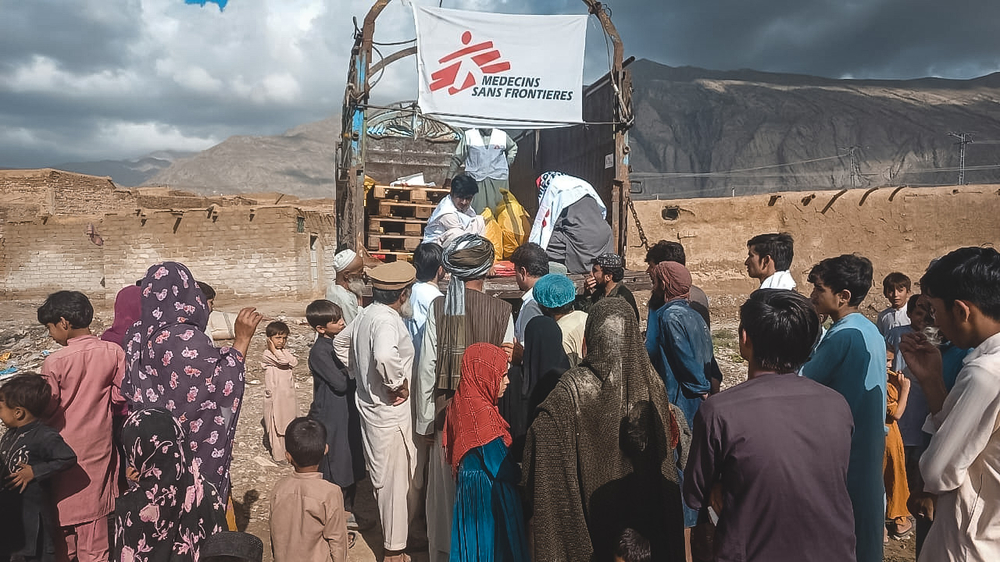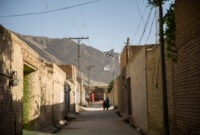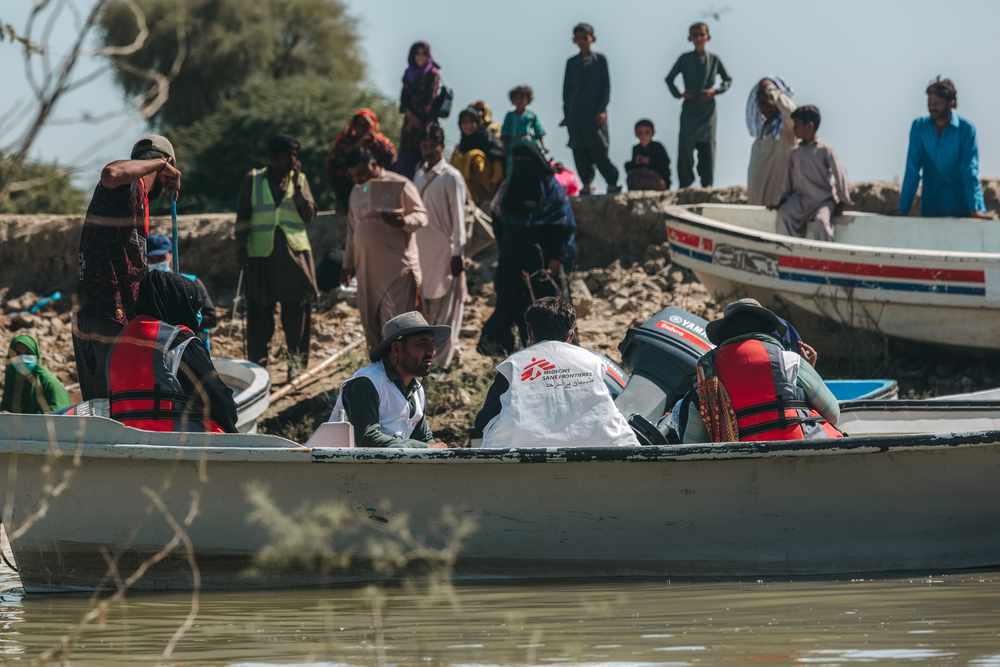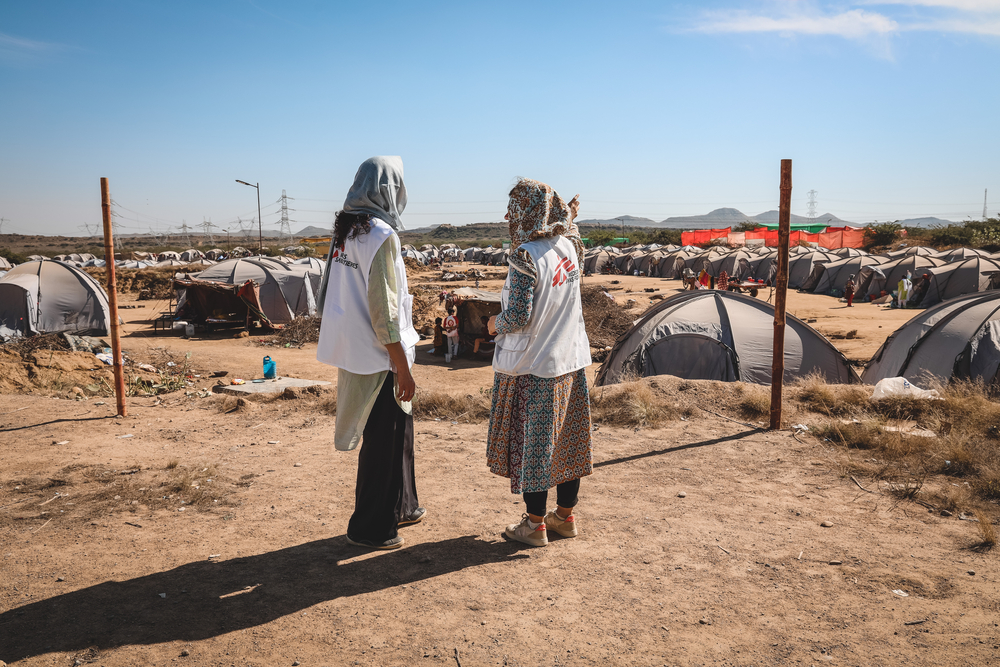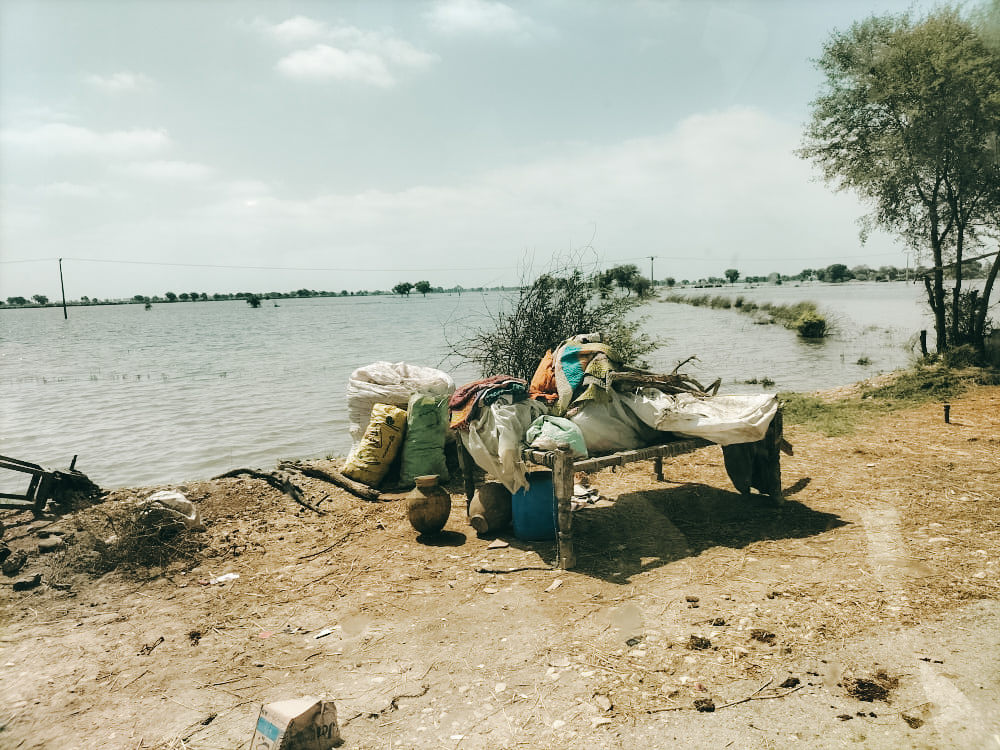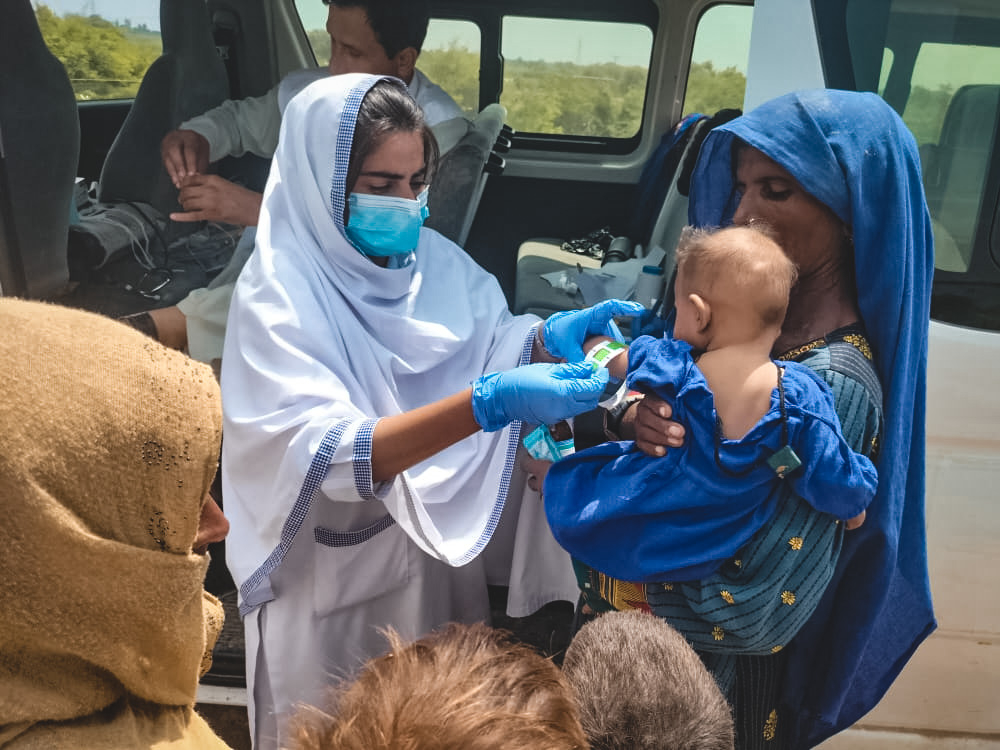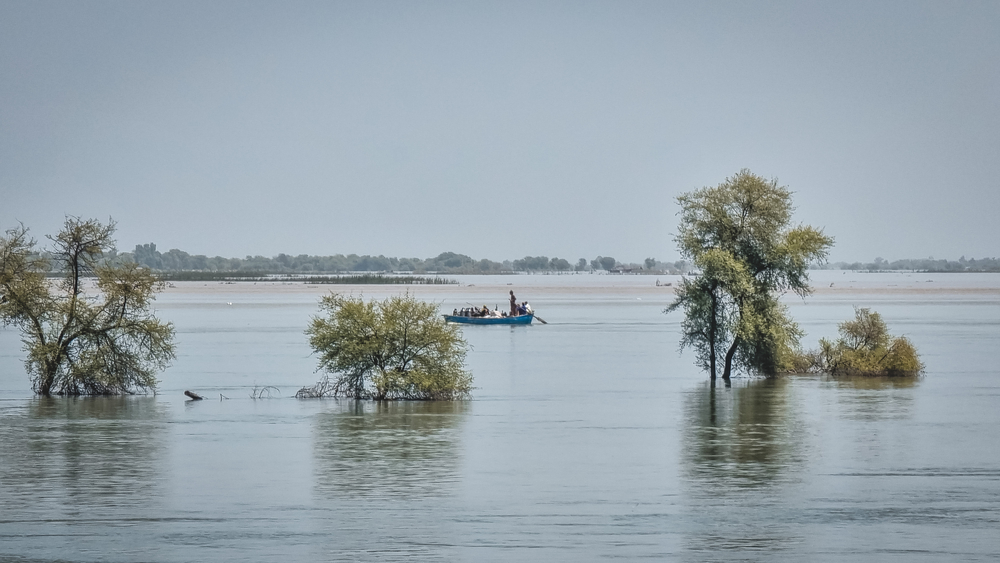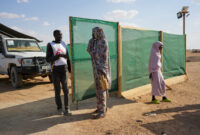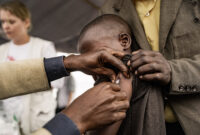Pakistan: MSF provides help in some of the areas hardest hit by severe floods
Pakistan is suffering widespread destruction from flooding due to exceptionally heavy monsoon rains, affecting some 33 million people. One-third of the country is now underwater, according to Pakistani officials. Doctors Without Borders/Médecins Sans Frontières (MSF) teams are on the ground providing primary health care, drinking water, and essential supplies, although access to some areas remains extremely challenging.
Many of our own staff members have been directly affected by the disaster, including colleagues whose homes have been flooded. Given the number of people affected, an urgent scale-up of the humanitarian response is needed.
Most of those who lost their homes are now living in tents on the banks of overflowing canals and rivers. The floodwater they may drink is contaminated. Toilets have been destroyed or are filled with mud making them unusable, and floodwater is stagnant. Southern and central Pakistan have been most affected, particularly Balochistan and Sindh provinces, which have seen more than four times the normal amount of rain for this season, according to Pakistan’s meteorological office. More than 1,000 people have died, and more than 1,500 people have been injured.
MSF teams see widespread needs for clean water, shelter, and sanitation facilities. With roads and access points deluged, food and other supplies are dwindling. Humanitarian groups are working to support the distribution of food and relief items. The lack of adequate water and sanitation creates severe risks for outbreaks of waterborne diseases such as cholera, while diseases such as dengue and malaria are also expected to increase. With heavy rains predicted to continue over the monsoon season, steps must be taken to safeguard people who are now displaced in areas that remain prone to further flooding.
#Breaking from #Pakistan: Widespread destruction caused by flooding during monsoon rains has over 70% of the country inundated.
Over 1,000 people are dead.
Over 1,500 people are injured.
At least 33 million people are affected.How we’re responding to the #PakistanFloods pic.twitter.com/N6SlHt9vPC
— MSF Canada (@MSF_canada) August 31, 2022
MSF’s response in Balochistan
In Balochistan, 31 out of 33 districts have been severely affected. Areas around Dera Murad Jamali (DMJ) have experienced significant flooding over the last two weeks. MSF teams, including staff whose own homes were flooded, have responded quickly to provide primary health care to people displaced by the disaster. We have provided aid to people gathered along the roads, in schools, and other makeshift shelters. In East Balochistan, we are starting water supply and mobile clinic in Manjhoo Shori, Usta Muhammad, Sohbatpur and the neighboring areas which are suffering most from the floods. Hygiene items such as soap bars will be distributed.

MSF has started mobile clinics in Dera Murad Jamali, providing primary health care and health promotion activities. Our teams are also providing referrals to the MSF-supported DMJ district headquarters hospital. Most of the patients have presented with respiratory infections, fever, skin diseases, or diarrhea. We are also screening for malnutrition and have seen children from our regular ambulatory therapeutic feeding center (ATFC) activities in the mobile clinics. In these early days of the response, we are not seeing large numbers of patients. This is likely due to access challenges, with many towns and villages cut off by the floodwaters. Our mobile clinics are running daily, and the team is currently visiting three locations around Dera Murad Jamali. MSF is providing clean drinking water by setting up water points and distributing non-food items, with kits including soap, buckets, cooking utensils, and mosquito nets. Another MSF team is assessing needs in Killa Abdullah district in the northwest of Balochistan province.
MSF also has projects in Quetta and Chaman, near the border with Afghanistan. The team has set up emergency water distribution points in Quetta city and donated approximately 300 non-food item kits. In Chaman, MSF has begun fixing damaged water pipes, distributing non-food items, and running a mobile clinic.
Reaching people in Sindh, Punjab, and Khyber Pakhtunkhwa

cture>
After facing transportation difficulties due to roads being washed away, our teams have reached camps in the Dadu district of Sindh province, where people who have been displaced are taking shelter. Our medical teams are treating 120 to 150 patients daily for skin diseases, diarrhea, and psychological distress. A big surge of acute water diarrhea (AWD) is expected in the coming weeks. MSF teams are currently assessing the needs and preparing to provide support. Our medical teams are treating 120 to 150 patients daily for skin diseases, diarrhea, and psychological distress. A big surge of acute water diarrhea (AWD) is expected in the coming weeks. About 50 to 60 per cent of houses built with traditional mud construction have been destroyed by the floodwaters and some people are living on riverbanks. There are immediate needs for clean drinking water, hygiene kits, and medical care to prevent the further spread of skin infections and diarrhea. Our teams are now preparing for possible outbreaks of waterborne diseases and other infections.
Other areas, including near Sukkur city, are being assessed, but the team did not wait to provide safe drinking water and basic non-food items like plastic sheets for some families who didn’t have any shelters. More aid will be delivered in the coming days, and we are establishing a base in Sukkur.
MSF is planning to launch an intervention in Nowshera and Charsada in Khyber Pakhtunkhwa province and in South Punjab soon. The waterbeds in the areas of Nowshera and Charsadda are contaminated and there is a high risk of water-borne diseases. The stagnant water is also leading to an increased risk of dengue and malaria cases. The flood has washed away the house items, mud walls and the latrines are damaged. We will focus on providing primary health services, hygiene kits, health promotion activities and mosquito nets, while supporting the health authorities with the surveillance and preparedness to potential outbreaks.
